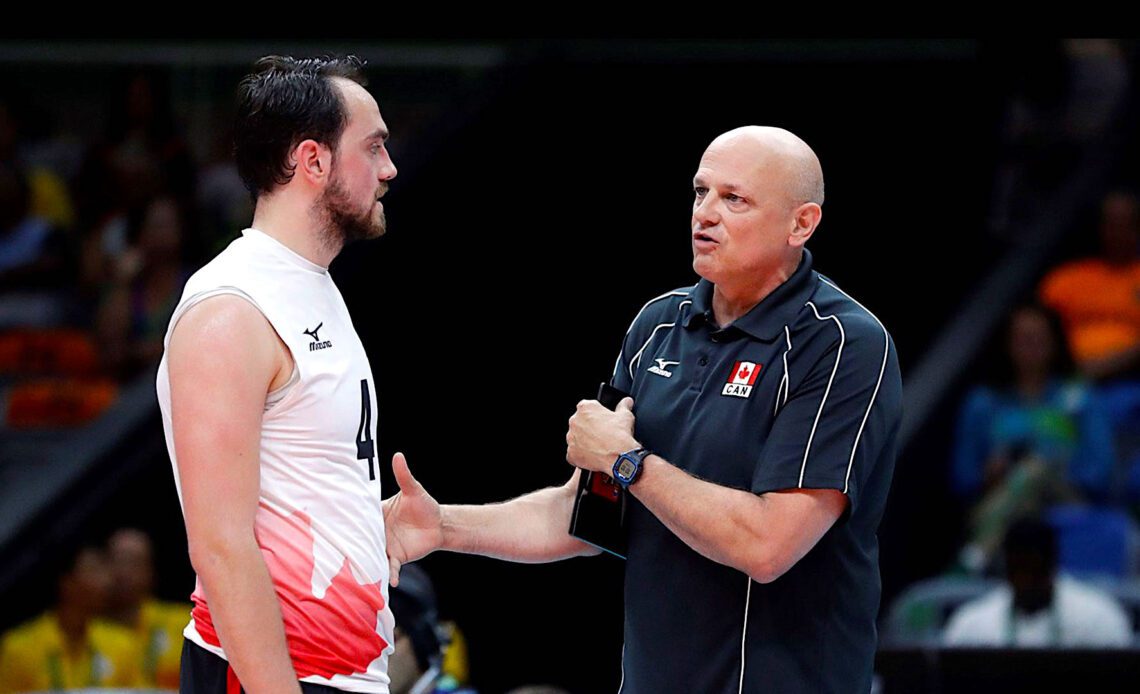There is an ongoing debate on the importance of a coach in sports, whether it’s Little League Baseball or fighting for volleyball gold at the Olympics. But let’s put it this way: if the coach had no bearing whatsoever, why do professional organizations with millions in research and data analysis continue to hire expensive managers in coaches?
Answer = Coaches make a difference.
They influence the organization from top to bottom, even if it’s not in their remit. Coaches foster team culture and cultivate it with diligent care to create optimal conditions for performance. They’re involved in the Xs and O’s, the team diet, physiotherapists, training sessions, everything.
In team sports like volleyball, coaches are critical. Teams of individuals never win, no matter how much talent is present. The impact on dynamics within the squad is unquestioned, and often the difference between winning and losing.
Joop Alberda’s Team-Building Pyramid
He’s one the best ever to do it, winning it all with his Dutch Olympic volleyball team in 1996. It was the pinnacle of his career, beating heavy pre-tournament favorites Italy in the final.
He attributes his success in part to the famous team-building pyramid. At the top of the pyramids is communication, without which teams cannot function. He leveled the field, encouraging players to not only talk to one another but to the coach as equals.
When he first took over the Dutch squad, the team also lacked confidence. The Italians were generally regarded as superior, with the Netherlands not known for its volleyball prowess. Alberda worked to give players a clear goal to work towards, a mutual dependence on each other, and the belief that they had the tools to win.
Tactical Innovator: Karch Kiraly
He’s one of the biggest names in volleyball, achieving elite results both as a player and coach. He notched three Olympic gold medals and two World Championships as a player, following that up with perhaps an even bigger achievement: during the 2020 Tokyo Olympics, he finally helped the United States women’s team achieve the gold medal.
His secret? Always looking forward, never the past. This outlook drives his innovative approach, resulting in a new and exciting offensive style for the national team. Moving away from a conservative style to more aggressive gameplay, markedly improving results for a team consisting largely of the same players.
Pros vs. College
Major studies show that Click Here to Read the Full Original Article at VolleyCountry…

